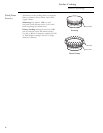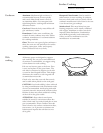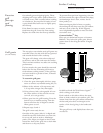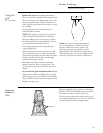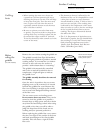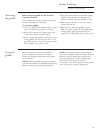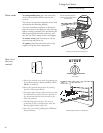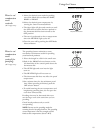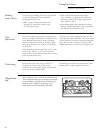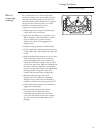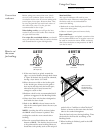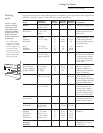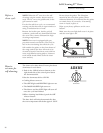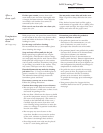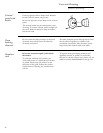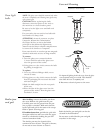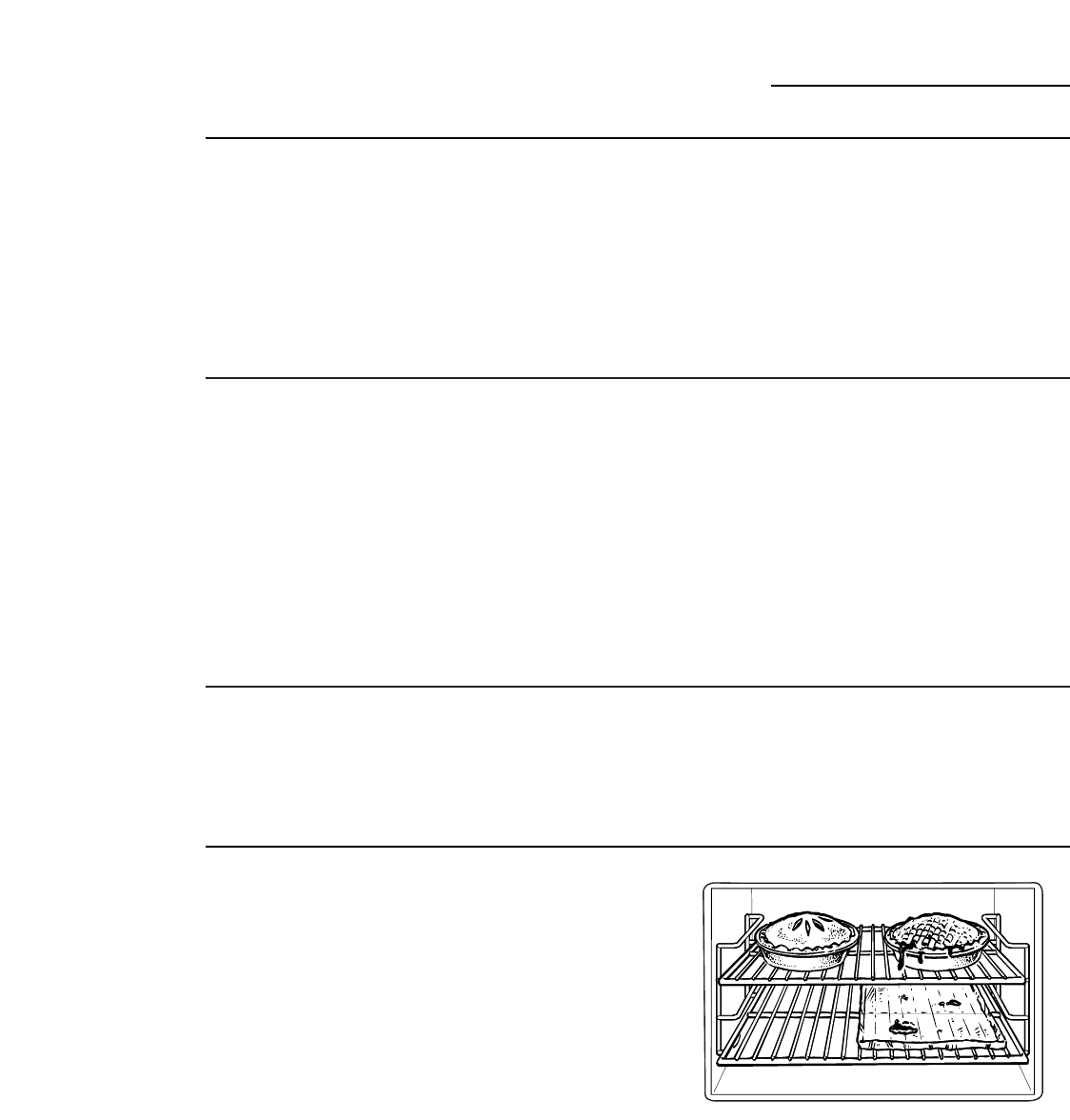
Baking
pans/sheets
Use the proper baking pan. The type of finish
on the pan determines the amount of
browning that will occur.
• Dark, rough or dull pans absorb heat
resulting in a browner, crisper crust.
Use this type for pies.
• Shiny, bright and smooth pans reflect
heat, resulting in a lighter, more delicate
browning. Cakes and cookies require this
type of pan or sheet.
•
Glass baking dishes also absorb heat. When
baking in glass baking dishes, the temperature
may need to be reduced by 25°F.
Pan
placement
For even cooking and proper browning, there
must be enough room for air circulation in the
oven. Baking results will be better if baking
pans are centered as much as possible rather
than being placed to the front or to the back
of the oven.
Pans should not touch each other or the walls
of the oven. Allow 1- to 1
1
⁄2″ space between
pans, between pans and the oven door, and the
back or sides of the oven.
If you use two racks, stagger the pans so one
is not directly above the other. Check the food
on the bottom rack sooner than the minimum
time. The food on the lower rack may cook
slightly faster than the food on the upper rack.
Preheating
Preheat the oven if the recipe calls for it.
To preheat, set the oven at the correct
temperature—selecting a higher temperature
does not shorten preheat time.
Preheating is necessary for good results when
baking cakes, cookies, pastry and breads.
Aluminum
foil
Never entirely cover a rack with aluminum foil.
This will disturb the heat circulation and result
in poor baking. A smaller sheet of foil may be
used to catch a spillover by placing it on a
lower rack several inches below the food.
24
Using the Ovens
Stainless Steel Range



